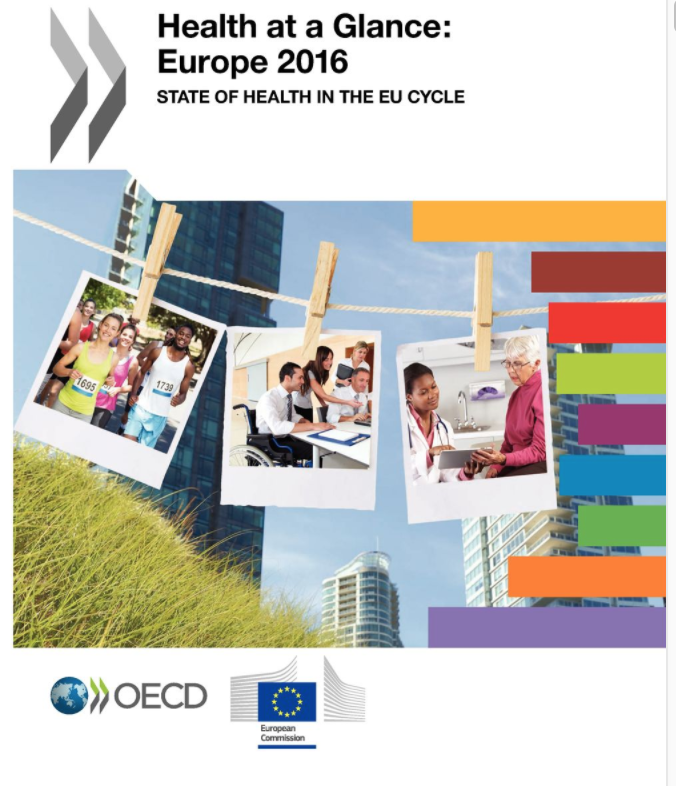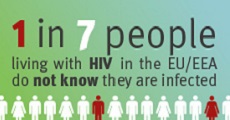EAHP EU Monitor - 2 December 2016
 The EAHP EU Monitor is a regular round up of news relevant to hospital pharmacy in Europe.
The EAHP EU Monitor is a regular round up of news relevant to hospital pharmacy in Europe.
You can subscribe to receive the EAHP EU Monitor by email HERE.
 Organisations and individuals have begun registering to participate in the common training framework consultation – don't miss out!
Organisations and individuals have begun registering to participate in the common training framework consultation – don't miss out!
Individuals and organisations from over a dozen countries have already registered to take part in a February 2017 consultation on a common training framework for hospital pharmacy in Europe. Interested parties are urged to register before 31 January 2017 by completing the short registration form at http://www.hospitalpharmacy.eu/ctf-consultation/
A common training framework for hospital pharmacy will represent an agreement on the competencies, knowledge, skills and attitudes required by the profession to deliver on the 44 European Statements of Hospital Pharmacy.
Thereafter, it is intended that the common training framework will be a general tool for hospital pharmacy development. This includes, but is not restricted to, providing:
- An inspiration for the development of competency-based education and training programmes for hospital pharmacy, especially in those countries where formal structures of this kind may be under consideration;
- An opportunity for cross-border cooperation in the provision of hospital pharmacy education and training;
- A European benchmark to which existing national programmes of hospital pharmacy education and training can be compared; and,
- A reference tool for personnel managers in the provision of workplace training and development.
In the longer term, it is hoped that ongoing and enhanced agreement between countries on the competencies required for practice of hospital pharmacy may present new opportunities for labour mobility.
The consultation on the framework's initial content will be conducted according to Delphi principles. The online portal will enable contributors to participate anonymously and continuously, as well as be informed by the ongoing contributions of others. Consecutive rounds of consultation, facilitated by an independent moderator team, will aim to achieve a consensus on the content in time to be voted on at the EAHP annual general assembly in Malta in June 2017.
The registration portal for the consultation will close on 31 January 2017, with the first round of consultation commencing in February 2017.
Professor Ian Bates, Chair of the CTF Steering Committee, said:
“Developmental frameworks for professional pharmacy education improve the whole pharmaceutical workforce and hence the quality and safety of pharmaceutical health service delivery. This is as true for hospital pharmacy as any other area of pharmacy. The proposed common training framework for hospital pharmacy in Europe represents an significant opportunity to enhance existing and future approaches for progressing professional competences for hospital services.
I would like to give my personal encouragement to all with an interest in hospital pharmacy education and training, including education providers, health system managers, the wider pharmacy profession itself, and of course the patients they serve, to register to participate in this important consultation. Every stakeholder has something important to tell us about their expectations from hospital pharmacy, which is why we are coordinating this opportunity for outreach.”
The registration portal for the CTF consultation is available HERE

Europe paying a heavy price for chronic diseases, finds new OECD-European Commission report
A new joint report from the European Commission and the Organisation for Economic Co-operation and Development (OECD) estimates that the premature deaths of 550,000 working‑age people across European Union countries from chronic diseases, including heart attacks, strokes, diabetes and cancer, cost EU economies EUR 115 billion or 0.8% of GDP annually. This figure does not include the additional loss in terms of lower employment rates and productivity of people living with chronic health problems.
The report, entitled "Health at a Glance", also explains that while earlier diagnosis and better treatments have substantially increased the share of people surviving these diseases, many countries ─ including the United Kingdom, Ireland and especially some Central and Eastern European countries ─ lag behind in terms of cancer survival rates.
"Many more lives could be saved if standards of care are raised to the best level across EU countries", said OECD Secretary-General Angel Gurría, launching the report in Brussels with European Commissioner for Health and Food Safety Vytenis Andriukaitis. "More needs to be done to reduce inequalities in access and quality of care, and European health systems must become more efficient in channelling resources where they have the most impact on health outcomes, including on prevention".
Health at a Glance: Europe 2016 shows slow growth in health spending in many EU countries in 2015, collectively accounting for 9.9% of EU GDP. Germany, Sweden and France each spent around 11% of GDP on health care, closely followed by the Netherlands and Denmark (at 10.8% and 10.6%, respectively). Countries in the Eastern part of the EU tend to spend much less, with shares ranging from 5% to 6% of GDP.
In all countries, the health spending share of GDP is projected to increase in the coming years due mainly to population ageing and the diffusion of new diagnostic and therapeutic technologies. More information HERE

ECDC report that 1 in 7 people living with HIV in the EU/EEA are not aware of their HIV status
Almost 30 000 newly diagnosed HIV infections were reported by the 31 European Union and European Economic Area (EU/EEA) countries in 2015, according to data published this week by the European Centre for Disease Prevention and Control (ECDC) and the WHO Regional Office for Europe. ECDC further estimates that currently around 122 000 people living with HIV across the region are unaware of their infection. The estimated time between HIV infection and diagnosis is four years.
European Commissioner for Health and Food Safety, Vytenis Andriukaitis, said: "HIV/AIDS continues to be a serious problem in Europe. The Commission is committed to helping Member States reach the Sustainable Development Goal target of ending HIV/AIDS and Tuberculosis by 2030 and reducing Hepatitis. ECDC's estimate that one in seven people living with HIV are unaware of their status is particularly worrying: people who do not know they are infected cannot benefit from life-saving treatment, and can continue to transmit the virus to others. This is why easy and accessible testing is so important. The European Commission supports HIV testing by working together with Member States and civil society on joint projects, funded by the EU Health Programme, on prevention and linkage to care".
"The facts we know about the HIV epidemic in the EU/EEA, are based on the number of new diagnoses reported each year, which represents the cornerstone of European HIV surveillance", explains ECDC Acting Director Andrea Ammon. "But we also know that these figures do not reflect the true picture. ECDC estimates that currently around 122 000 people in the EU/EEA are infected with HIV but are not aware of their infection – that is every 1 in 7 people living with HIV in the region".
More information HERE

EJHP: Book Review of 'Introducing Palliative Care' 5th edition
The online first edition of the European Journal of Hospital Pharmacy (EJHP) has recently published a review of the 5th edition of 'Introducing Palliative Care'. The book has been used for over two decades in medical and nursing schools as well as in a variety of hospice and hospital settings in many countries. This updated edition offers interesting new sections on ethics, law, and paediatric symptom management, as well as an 'Essential Palliative Care Formulary'.
More information HERE




